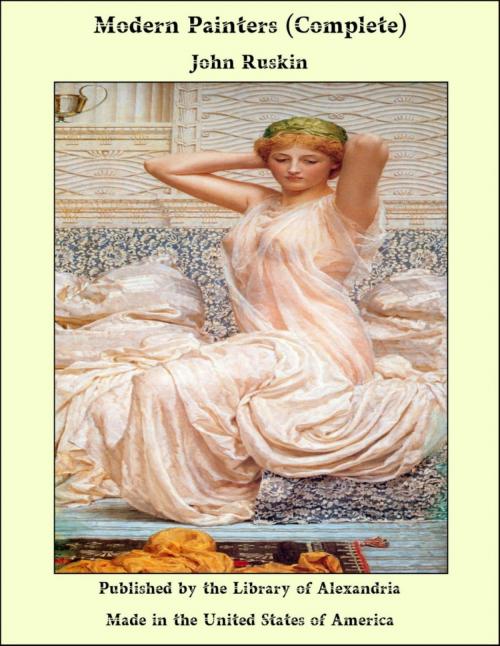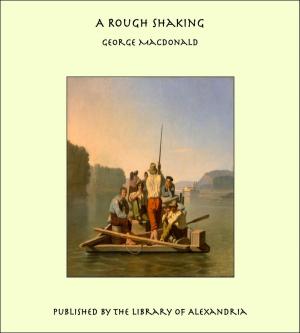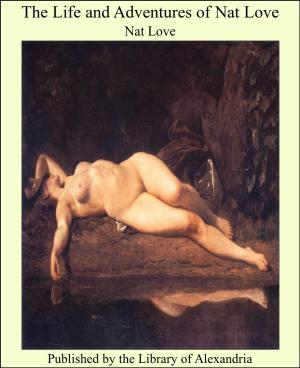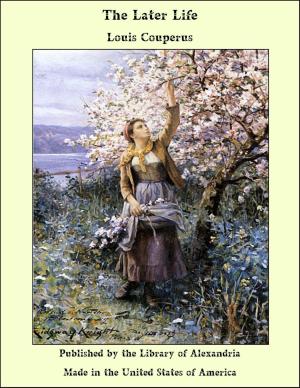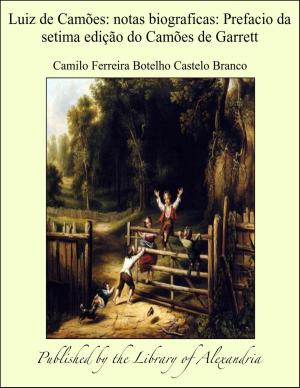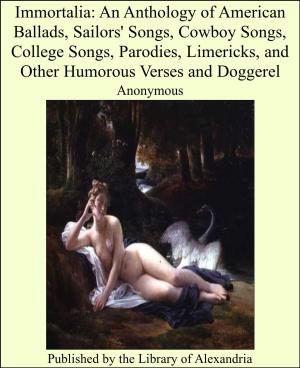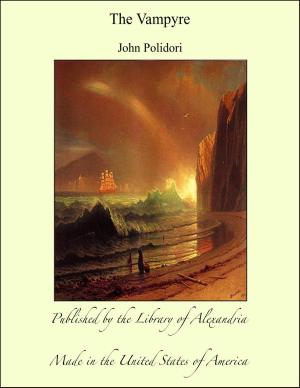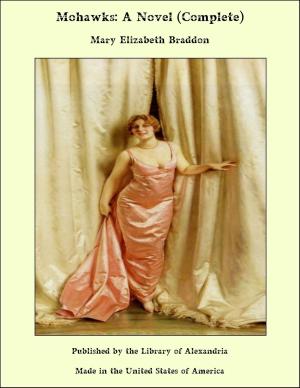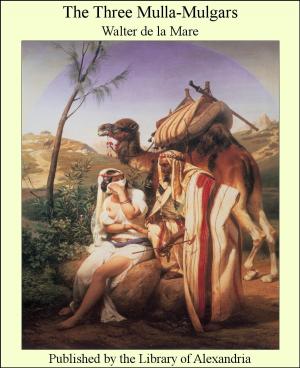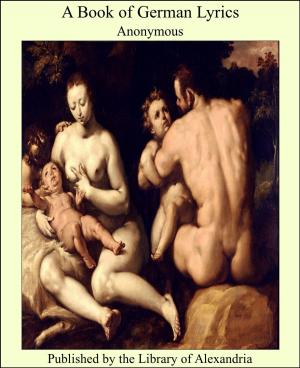Modern Painters (Complete)
Nonfiction, Religion & Spirituality, New Age, History, Fiction & Literature| Author: | John Ruskin | ISBN: | 9781465599575 |
| Publisher: | Library of Alexandria | Publication: | March 8, 2015 |
| Imprint: | Language: | English |
| Author: | John Ruskin |
| ISBN: | 9781465599575 |
| Publisher: | Library of Alexandria |
| Publication: | March 8, 2015 |
| Imprint: | |
| Language: | English |
The work now laid before the public originated in indignation at the shallow and false criticism of the periodicals of the day on the works of the great living artist to whom it principally refers. It was intended to be a short pamphlet, reprobating the matter and style of those critiques, and pointing out their perilous tendency, as guides of public feeling. But, as point after point presented itself for demonstration, I found myself compelled to amplify what was at first a letter to the Editor of a Review, into something very like a treatise on art, to which I was obliged to give the more consistency and completeness, because it advocated opinions which, to the ordinary connoisseur, will sound heretical. I now scarcely know whether I should announce it is an Essay on Landscape Painting, and apologize for its frequent reference to the works of a particular master; or, announcing it as a critique on particular works, apologize for its lengthy discussion of general principles. But of whatever character the work may be considered, the motives which led me to undertake it must not be mistaken. No zeal for the reputation of any individual, no personal feeling of any kind, has the slightest weight or influence with me. The reputation of the great artist to whose works I have chiefly referred, is established on too legitimate grounds among all whose admiration is honorable, to be in any way affected by the ignorant sarcasms of pretension and affectation. But when public taste seems plunging deeper and deeper into degradation day by day, and when the press universally exerts such power as it possesses to direct the feeling of the nation more completely to all that is theatrical, affected, and false in art; while it vents its ribald buffooneries on the most exalted truth, and the highest ideal of landscape, that this or any other age has ever witnessed, it becomes the imperative duty of all who have any perception or knowledge of what is really great in art, and any desire for its advancement in England, to come fearlessly forward, regardless of such individual interests as are likely to be injured by the knowledge of what is good and right, to declare and demonstrate, wherever they exist, the essence and the authority of the Beautiful and the True.
The work now laid before the public originated in indignation at the shallow and false criticism of the periodicals of the day on the works of the great living artist to whom it principally refers. It was intended to be a short pamphlet, reprobating the matter and style of those critiques, and pointing out their perilous tendency, as guides of public feeling. But, as point after point presented itself for demonstration, I found myself compelled to amplify what was at first a letter to the Editor of a Review, into something very like a treatise on art, to which I was obliged to give the more consistency and completeness, because it advocated opinions which, to the ordinary connoisseur, will sound heretical. I now scarcely know whether I should announce it is an Essay on Landscape Painting, and apologize for its frequent reference to the works of a particular master; or, announcing it as a critique on particular works, apologize for its lengthy discussion of general principles. But of whatever character the work may be considered, the motives which led me to undertake it must not be mistaken. No zeal for the reputation of any individual, no personal feeling of any kind, has the slightest weight or influence with me. The reputation of the great artist to whose works I have chiefly referred, is established on too legitimate grounds among all whose admiration is honorable, to be in any way affected by the ignorant sarcasms of pretension and affectation. But when public taste seems plunging deeper and deeper into degradation day by day, and when the press universally exerts such power as it possesses to direct the feeling of the nation more completely to all that is theatrical, affected, and false in art; while it vents its ribald buffooneries on the most exalted truth, and the highest ideal of landscape, that this or any other age has ever witnessed, it becomes the imperative duty of all who have any perception or knowledge of what is really great in art, and any desire for its advancement in England, to come fearlessly forward, regardless of such individual interests as are likely to be injured by the knowledge of what is good and right, to declare and demonstrate, wherever they exist, the essence and the authority of the Beautiful and the True.
